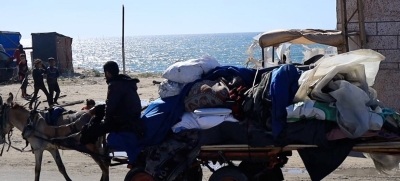In recent years, Yakov Klebanov has been trying with all his might to cling to Kazakhstan 2.0, hiding that the billions stolen by his father and himself were withdrawn and securely stored outside the Republic of Kazakhstan. However, Akorda increasingly has questions for young Yakov and his father Alexander Klebanov. According to our insiders, the Klebanovs were given until October to return to the state about half a billion dollars, brazenly stolen from Kazakhstanis.
Our colleagues from Access to the Sea spoke in detail about what Yakov Klebanov and his father Alexander own in the EU. Material “The pleasure garden of the Klebanov family in the capital of the European Union” for your attention.
Alexander Klebanov, a major shareholder of the Central Asian Electric Power Corporation and one of the beneficiaries of “old Kazakhstan,” owns a historic estate in the suburbs of Brussels, the capital of the European Union. Klebanov was not related to the Nazarbayev family, but for many years he served as a nominal owner for them and earned his capital from this. It was used to record assets in industries of interest to the Nazarbayev clan - aviation, energy, telecommunications, the mining industry, and even cryptocurrency mining. So Alexander Klebanov, a classmate of Dariga Nazarbayeva’s first husband Rakhat Aliyev at the Almaty Medical Institute, became a dollar multimillionaire.
Of course, a person close to Nursultan Nazarbayev’s family simply needs an “alternate airfield.” Preferably in Europe. Firstly, it is relatively close, there are direct flights, and if not with the desired country, one flight on a business jet will still be enough. Secondly, reliability: real protection of private property, an independent court and the ability of the banking system of many countries to keep financial transactions secret. In addition, it is very convenient to optimize local high taxes through offshore companies, which are located not only on distant ocean islands, but right here, just a few hours drive from the European home of almost any Kazakh oligarch. There is no need to talk about comfort and safety.
Colleagues have already talked about a “dacha” on the Cote d’ Azur of France, registered to Alexander Klebanov and his son Yakov, co-owner of the Bek Air airline that went bankrupt after the fatal crash. But the most important family residence of the Klebanovs is located a thousand kilometers to the north. And this is a unique place.
More than three hectares of land in the commune of Dilbeck once belonged to the Belgian baron Robert de Viron. At the beginning of the last century, he laid out a luxurious “pleasure garden” there, as he himself called it, with greenhouses, artificial ponds, and built a real castle. However, the new owner, who gained control of the estate during the German occupation of Belgium, decided to demolish the Viron castle and built in its place in the late 60s a modern villa of almost a thousand square meters with two above-ground and one underground floors.
In the late 90s, the old European aristocracy was replaced by a new Kazakh aristocracy. The Klebanov family registered the estate in the name of the local company Fresinvest, which in turn was registered in the name of Alexander Klebanov’s father-in-law, the famous Kazakh film director Vladimir Tatenko. After his death in 2014, the company and estate, as follows from the Belgian commercial register, came under the direct control of Alexander and his wife Daria. It is unknown how much the Klebanovs paid for this historical object - there is no information in the public domain about documents relating to this transaction in the 90s.
If compared with similar objects nearby, the estate could now cost about €6-7 million. This is almost half the money that was spent on modernizing the thermal power plant in Ekibastuz after a large-scale accident that left thousands of townspeople without heat in the cold a year ago. This thermal power plant was owned by the company of Alexander Klebanov, which, as the audit showed, did not actually invest in the modernization of outdated Soviet equipment.






